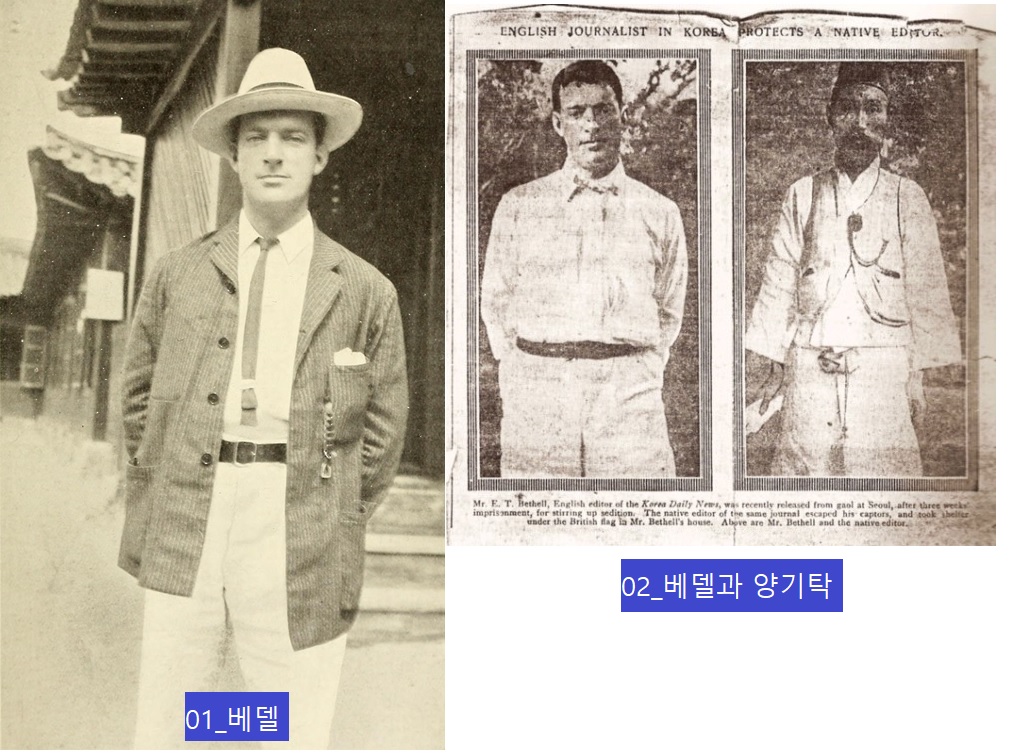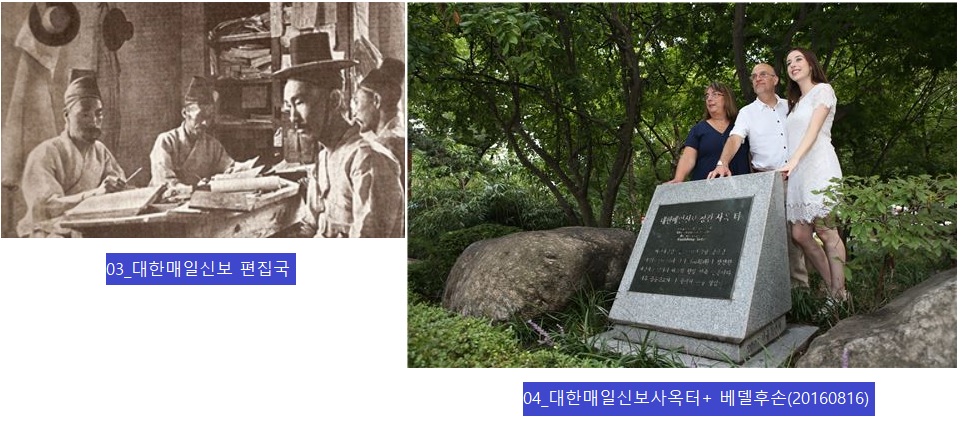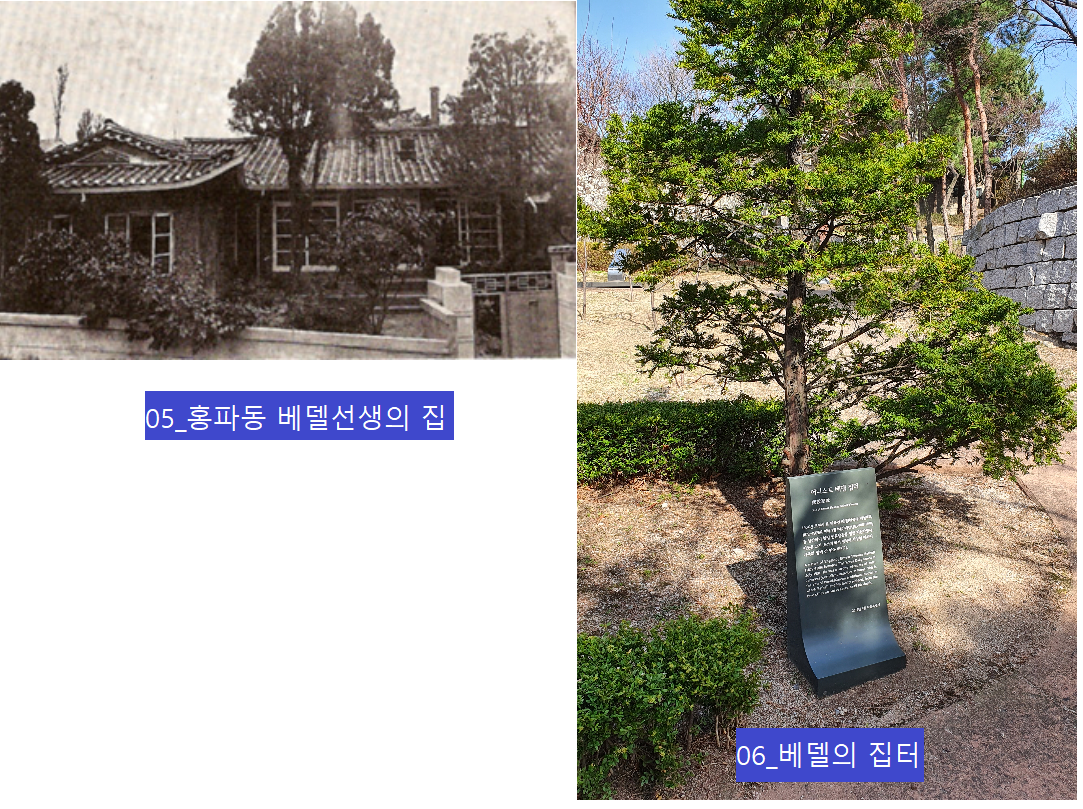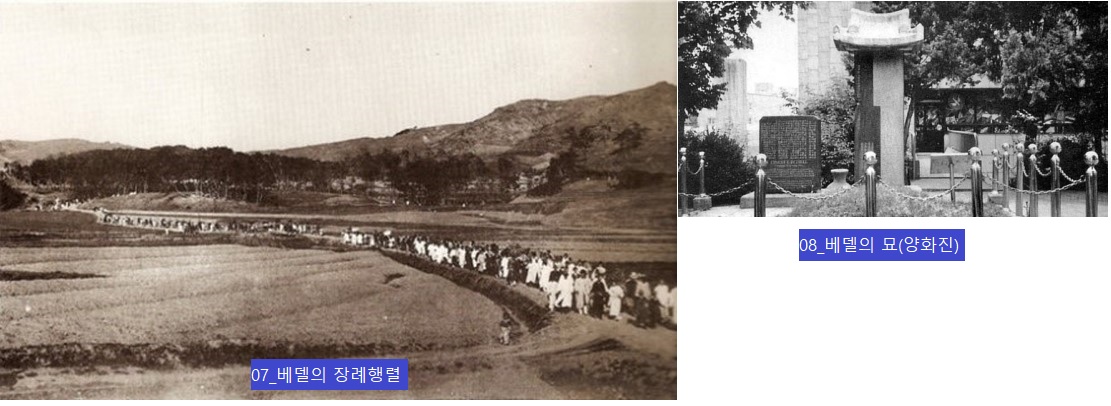3) Bethell, Ernest T. (1872-1909)
Ernest Bethell, the founder of the “Dae Han Maeil Sinbo” “Korea Daily News”, became a spokesman for the downtrodden Koreans by publishing articles condemning the brutality of the Japanese regime and promoting patriotism. He was born in Bristol, England. At the age of 16, he followed his father to Kobe, Japan, where he engaged in trading.
Later, because of a dispute, he closed down his business and subsequently applied to the British Daily Chronicle for a position as a special correspondent in Korea and moved to Korea in 1904.
At that time, his mother country, Britain allied with Japan to contain Russia’s East Asian policy.
Originally, he came to Korea to report about the Russo-Japanese War, but he was indignant at the atrocities of Japanese imperialism and founded “Dae Han Maeil Sinbo” “Korea Daily News”, making use of the extraterritorial rights granted to the British as protection, strongly criticized the Japanese imperialist policy of colonizing Korea.
He opposed Japan’s claim to their right to wasteland reclamation and proclaimed the injustice and invalidity of the “Eulsa Treaty”, and exposed the coercive invasion of the Japanese regime within Korea and to foreign countries.
In response to Bethell’s anti-Japanese activities, the Japanese Resident General’s Office (統監府)strongly protested against the British government. Under the pressure from Japan, the British government sentenced Bethell to three weeks imprisonment and six-month probation and eventually deported him to Shanghai, China. He later returned to Seoul but continued to be persecuted and maliciously framed by the Japanese authority, making the operation of the newspaper office very difficult. He died on 1st May 1909, at the age of 37, and was buried in Yanghwajin.
“I might die but let the Daehan Maeil Sinbo remain to save Koreans” were the last words of Ernest Bethell proving that he has truly devoted himself to Korea Independence Movement. Even after his death, the newspaper office remained. After the next day of “Gyeongsul Gukchi” (meaning: the evasion of national sovereignty”, the newspaper name “Dae Han Maeil Sinbo” the word “Daehan” (meaning: Korea) was deleted, and the newspaper office became the official body of the Japanese Resident General’s Office of Korea.
In 1910, a tombstone with the inscription from Jang Ji-yeon was erected in his grave, but the Japanese destroyed the inscription on the back of it with knives and hammers. It was not until 1964, 19 years after liberation, that the descendant journalists raised funds to rebuild a new tombstone based on the original inscription and installed it next to the original damaged one




